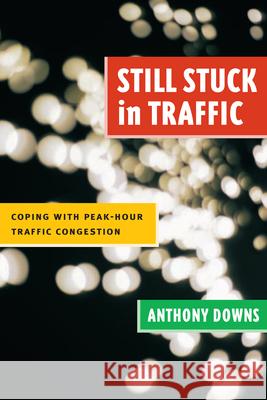Still Stuck in Traffic: Coping with Peak-Hour Traffic Congestion » książka
Still Stuck in Traffic: Coping with Peak-Hour Traffic Congestion
ISBN-13: 9780815719298 / Angielski / Miękka / 2004 / 472 str.
Most Americans view traffic congestion as the most serious environmental problem facing communities today. While overwhelming public sentiment has forced local governments to employ a variety of anticongestion strategies, it has been difficult to gauge their efficacy. Only one thing is certain: most residents of metropolitan areas believe that traffic congestion is getting worse, not better. anticongestion programmes. Drawing on a significant body of research from transportation experts and land-use planners, the book examines the advantages and disadvantages of various strategies, considers the causes of worsening traffic problems, weighs efforts to remedy or reduce their intensification, and identifies the most effective remedies. This edition contains wholly new chapters on the fundamental cause of congestion, how bad it is across the country, how much congestion is caused by accidents and other incidents, whether expanding public transport capacity can help overcome congestion, and the detailed dynamics of how congestion arises on major expressways each day. co-operation among localities. He also argues that building enough new roads to fully alleviate current peak-hour traffic congestion is too costly, and is already impossible in many of the world's largest metropolitan areas. He believes major expansion of public transportation - though possibly desirable to increase mobility - will not decrease congestion much. And he concludes that rationing roads would be unrealistic and ineffective. Since none of these possibilities is practical, Downs seeks to explore why traffic congestion has arisen in our society, why is it getting more intensive, and why it cannot be eliminated entirely.











